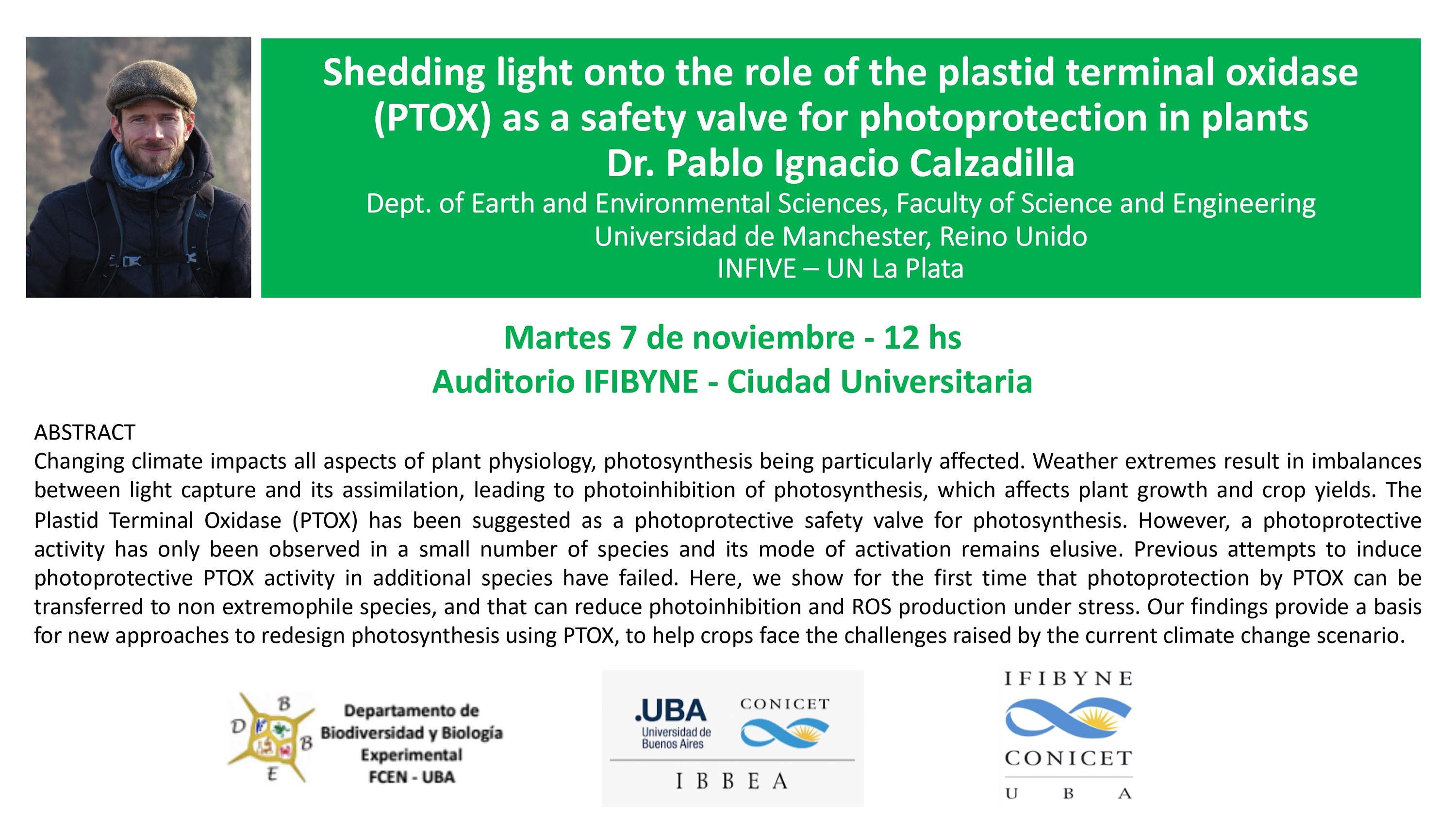
Shedding light onto the role of the plastid terminal oxidase (PTOX) as a safety valve for photoprotection in plants
Dr. Pablo Ignacio Calzadilla
Dept. of Earth and Environmental Sciences, Faculty of Science and Engineering Universidad de Manchester, Reino Unido
INFIVE – UN La Plata
Martes 7 de noviembre – 12 hs
Auditorio IFIBYNE – Ciudad Universitaria
Changing climate impacts all aspects of plant physiology, photosynthesis being particularly affected. Weather extremes result in imbalances between light capture and its assimilation, leading to photoinhibition of photosynthesis, which affects plant growth and crop yields. The Plastid Terminal Oxidase (PTOX) has been suggested as a photoprotective safety valve for photosynthesis. However, a photoprotective activity has only been observed in a small number of species and its mode of activation remains elusive. Previous attempts to induce photoprotective PTOX activity in additional species have failed. Here, we show for the first time that photoprotection by PTOX can be transferred to non extremophile species, and that can reduce photoinhibition and ROS production under stress. Our findings provide a basis for new approaches to redesign photosynthesis using PTOX, to help crops face the challenges raised by the current climate change scenario.

